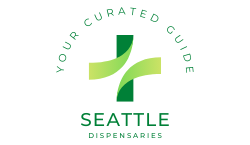Dispensaries are stores that sell marijuana and related products directly to customers. Their sales are subject to state and local laws to ensure compliance with medical and recreational cannabis regulations.
Many dispensaries require customers to register; this process typically is straightforward and can save valuable time down the line.
Standard Operating Procedures (SOPs) help dispensaries improve efficiency, comply with regulations and mitigate risks by outlining order ahead, online ordering and curbside pickup workflows as part of their SOPs.
What is a dispensary?
Dispensaries are stores where cannabis and related products are sold, typically within states with legalized marijuana. Dispensaries must follow state laws and regulations, often requiring customers to present valid ID before buying (to verify they are over 21) as many banks still refuse doing business with cannabis retailers.
Most dispensaries feature a front of house area where receptionists or greeters check IDs, manage queues, and assist customers/patients find products. Usually this area is separated from the rest of the shop with an opaque wall to give patients privacy as well as direct one-on-one contact with budtenders.
Some dispensaries sell their products deli-style, with the budtender bringing over individual jars or bags of product directly to customers/patients. While this method is convenient for customers/patients, it may take more time from staff members and pose potential security risks.
Types of products sold at a dispensary
Dispensaries provide customers with a variety of different cannabis products, such as flowers, concentrates, edibles and vapes. Many also sell accessories and infused items.
Naming conventions in dispensaries provide a uniform way of labeling products, helping businesses comply with inventory laws while staying organized with product lines. A file system using FIFO (First In First Out) may also help.
Some states have legalized recreational cannabis use while others restrict it strictly for medical use only, creating variations and potency restrictions at stores selling cannabis products.
Back of House (BOH) refers to the area of a dispensary not visible to customers and typically consists of security rooms, offices and secure cash storage as well as audited inventory storage and audit. Furthermore, some BOH locations also include kitchen facilities to prepare food for staff as well as customers.
Pricing
Numerous elements can influence a dispensary’s pricing strategies. From regulatory costs, wholesale costs, markup rates and local taxes to brand recognition and customer demand – these must all be factored into its pricing strategies.
Data from state retail sales reports, census information and price comparison databases can help a dispensary assess its competitive market and set accurate prices. Staying abreast of cannabis trends and listening to community concerns are additional ways of making informed pricing decisions.
Dispensaries can speed up their checkout process with out-the-door (OTD) pricing POS software like Flowhub Maui’s OTD option. OTD pricing helps remove confusion between shoppers and budtenders while saving both parties time. In addition, OTD pricing expedites payments by eliminating the need to count change or return it back to customers. It also ensures customers understand all taxes are included within product prices. Flowhub Maui makes implementation simple while giving seamless service experience for shoppers.
Security
States often mandate that dispensaries implement stringent security measures prior to opening, with regulators fining or suspending licenses of stores that fail to meet requirements. It’s imperative that dispensaries create an all-encompassing security plan which protects inventory, cash and customers.
An internal theft threat to any cannabis retail establishment is one of its greatest vulnerabilities: employee shoplifting or theft from employees themselves can occur through employee shoplifting or employee armed robberies and break-ins. Dispensary owners can reduce this risk by training staff on security protocols for dispensaries as well as installing surveillance systems in stockrooms, cash handling areas and parking lots.
Surveillance systems can also be connected to a 24/7 monitoring service for quick response in case of any security breach, while motion detectors are useful in spaces like storage rooms and off-limit areas to detect movement and notify authorities. Covert duress buttons offer another layer of security by allowing employees to summon assistance without risking their safety.
